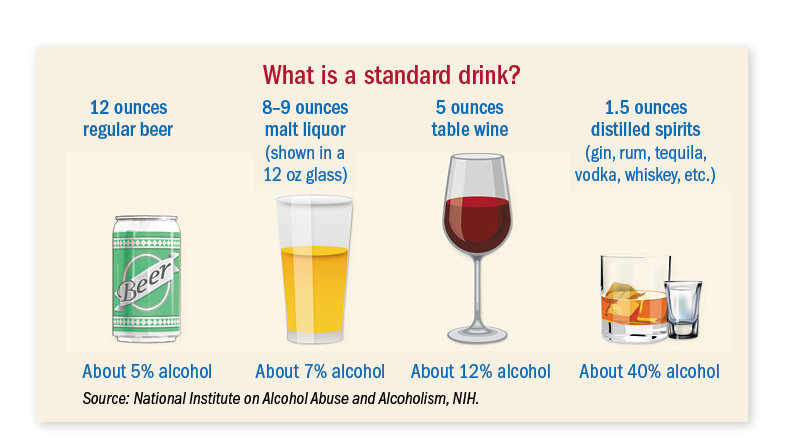The (almost) last word on alcohol and health
Is drinking alcohol healthy or harmful? It still comes down to how much you consume.
- Reviewed by Howard E. LeWine, MD, Chief Medical Editor, Harvard Health Publishing; Editorial Advisory Board Member, Harvard Health Publishing

New information has again opened the debate about what role, if any, alcohol plays in health. Is a moderate amount good for your heart? Can you still enjoy the occasional beverage, or should you become a teetotaler as you age?
Like so much in life, it's complicated.
"There's good evidence that, in general, moderate drinkers who average one to two drinks a day tend to live longer," says Eric Rimm, professor of epidemiology and nutrition and director of the Program in Cardiovascular Epidemiology at the Harvard T.H. Chan School of Public Health. "Whether that is directly linked with alcohol, other lifestyle factors, or some combination is still being explored."
Different findings
Why might alcohol be healthy? It's thought that moderate intake helps raise levels of "good" HDL cholesterol, higher amounts of which are associated with a lower risk for heart disease. Alcohol also may discourage the formation of small blood clots that can lead to heart attacks and stroke.
Still, new studies have cast doubt on the connection between alcohol and good health.
For instance, a meta-analysis (that is, a study based on data collected in multiple earlier trials) published in March 2023 in JAMA Network Open concluded that low-volume drinkers (1.3 to 24 grams of alcohol daily, or less than two standard drinks) did not live longer than people who never drank.
Medium-volume drinking (25 to 44 grams, about two to three daily standard drinks) also didn't offer significant health protection. Rimm is quick to pump the brakes on this and similar conclusions based on data from multiple studies.
"New findings do not mean that everything else that came before is wrong," he says. "The problem with these studies is that they combine good and poor research. So, it's difficult to make a conclusion with information where alcohol is assessed so differently. For many studies they completely ignored measuring drinking patterns."
Another issue is that most alcohol-related studies are observational — that is, they can show an association, but not cause and effect.
Other factors linked with alcohol intake may contribute to drinkers' well-being. For instance, a study published in March 2022 in JAMA Network Open found that moderate drinkers had the lowest heart disease risk compared with nondrinkers, suggesting that some alcohol intake may benefit heart health.
Yet the research team also discovered that light-to-moderate drinkers had healthier lifestyles than abstainers. They were more physically active, ate more vegetables and less red meat, and didn't smoke as much.
Glass half full
What seems clear in most research supporting the health benefits of alcohol is that the amount is key. Light to moderate intake remains the best advice.
The CDC classifies moderate alcohol intake for adult men as two standard drinks or fewer on days when they drink. A standard drink is approximately 12 ounces of regular beer (5% alcohol by volume, or ABV), 8 to 9 ounces of malt liquor (7% ABV), 5 ounces of wine (12% ABV), or 1.5 ounces of 80-proof spirits (40% ABV). (See "What is a standard drink?".)
Of course, most people don't drink daily, and some may go for long periods without alcohol. "But even occasional drinkers may still receive some benefits," says Rimm.
Does the type of alcohol matter? Not really. Your body reacts to alcohol the same way whether it comes from a California wine, Scotch whiskey, or craft beer. "The differences between beverages are the percentage of alcohol," says Rimm.
(To more accurately analyze your drink's alcohol content per serving size, use this drink calculator from the National Institutes of Health: /size.)
Your choice of beverage can have adverse health effects unrelated to the alcohol. For instance, a gin-and-tonic cocktail contains high amounts of sugar, and most beer is high in carbohydrates and calories.
One part of the alcohol debate everyone agrees on is not drinking too much.
"Studies have found that regularly drinking beyond the recommended amount can raise a person's risk for numerous health problems, like liver failure, high blood pressure, heart failure, and several types of cancer," says Rimm. Also, avoid regular excessive drinking and binge drinking (consuming five or more drinks on one occasion).

Last call
So what is the conclusion? According to Rimm, if you don't drink, there is no reason to begin. If you only occasionally drink, don't increase your intake for health reasons. But for the casual or regular drinker, it's fine to enjoy an alcoholic beverage — in moderation.
But you should also weigh your alcohol intake with your overall heart health, adds Rimm. For example, if you have high blood pressure, you may want to drink less or abstain from drinking and focus on getting your blood pressure under control.
"If you have any health issues, it's best to speak with your doctor about what is the proper amount of alcohol for you," says Rimm.
Image: © Chris Ryan/Getty Images
About the Author

Matthew Solan, Former Executive Editor, Harvard Men's Health Watch
About the Reviewer

Howard E. LeWine, MD, Chief Medical Editor, Harvard Health Publishing; Editorial Advisory Board Member, Harvard Health Publishing
Disclaimer:
As a service to our readers, Harvard Health Publishing provides access to our library of archived content. Please note the date of last review or update on all articles.
No content on this site, regardless of date, should ever be used as a substitute for direct medical advice from your doctor or other qualified clinician.
















